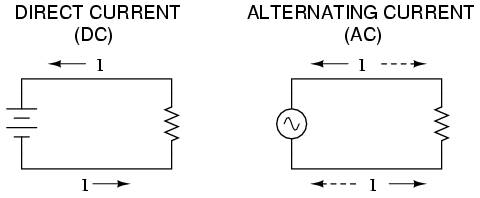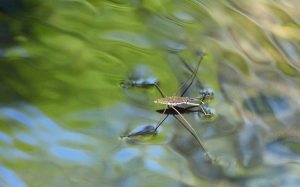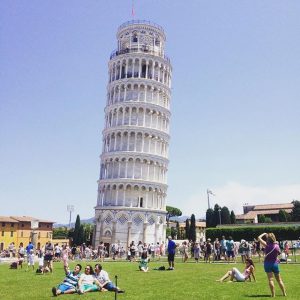Category Archives: Uncategorized
Module One Post Five
Module One Post Four
Module One post Three
Module One Post Two
Basic Ac Theory
AC stands for alternate current. alternate current goes back and fourth
and DC (direct current) goes one one way

How to Find out Which one is AC and DC
AC DC


Alternate current is the wavy image because alternate current goes up and down and is used mostly in houses and is safer than DC also is in every outlet.
Direct current is the one that is a line and if someone got electrified they wouldn’t be able to get out and then they would expire, and this is used in the electric companies.
Difference between AC and DC
DC (direct current) is the kind of electricity made by a battery with definite positive and negative terminal, or the kind of charge generated by rubbing certain types of materials against each other.
voltage switching polarity or as a current switching direction back and forth this kind of electricity is known as Alternating Current (AC).
Module One Post Fifteen (Tap Styles)
For my fifteenth and final post of module one, I have found a website that informs people about the different styles of tap dance as it grew and became more popular. First, there was clog dancing which was wooden soles that made the noises. Clog dancing came from Ireland. This website also talks about soft shoe and sand dancing. Soft shoes dancing is where tap dance is done with the same kinds of shoes as the tap shoes now except there are no metal plates on them. Tap dancing has been in many Broadway musicals in movie productions. Some of the people who helped bring tap dance to the stage was Fred Astaire, Paul Draper, and Gene Kelly. This website is great for those who just want to know the different styles of tap.
Module One Post Fourteen (Fun Facts)
My fourteenth post will be a few fun facts about tap throughout the years. Before tap shoes were available African American slaves weren’t allowed to play their drums, so they beat out the rhythm using their feet. Tap shoes now and the different kinds of tap shoes then were similar in the way that they make sounds but not the materials that they used, for example they used wooden clogs on leather shoes.During the 1930-1940’s tap had gotten a bigger audience and people like Fred Astaire and Ray Bolger impressed many people and brought tap to Hollywood. I think this website is nice for people who just want to know a few facts about tap but not read five paragraphs about it.
Module One Post Fifteen (Surface Tension of Water)

While I was by a pond this summer, I saw insects standing on the surface of the water. After some searching, I find that the insect named water strider is able to stand on water due to water`s surface tension despite its denser body mass than water. This tension is due to the cohesive nature of water molecules that provides a strong cohesive force between the water molecules. When the water strider is exerting force on water, surface tension pushes back, creating a net force of zero. This contributes to the interesting phenomenon that I have observed at the pond.
Module One Post Fourteen (Leaning of Pisa Tower)

The leaning tower of pisa in Italy seems like a miracle that is defying gravity`s pull. Since gravity force would be greater on objects with greater mass, it is fascinating how pisa tower is still standing with an approximate mass of 14,500 tonnes! Physicists predict that the tower would fall when its leaning angle reaches 5.44 degrees, but the pisa tower has been seen to reach an angle of 5.5 degrees before restoration work has been done between 1990 and 2001. With advancing technology in engineering and architecture, the tower is now standing at an 3.99 degrees angle. This helps with preserving this amazing architecture piece for another few hundred years or even longer.
Module One Post Thirteen (Enzyme Kinetics)
This page explains what enzymes are and how their chemical reaction rates can be predicted by math functions. Enzymes are protein catalysts that can speed up chemical reactions by lowering activation energy required. They are not only used in science experiments, but also broadly used by living organisms for cellular processes. This site explains how reaction rate depends on the concentration of substrate at a fixed enzyme concentration. The rate of product formation can be determined by monitoring the rate that substrate disappears. This can be useful in chemistry experiments.
